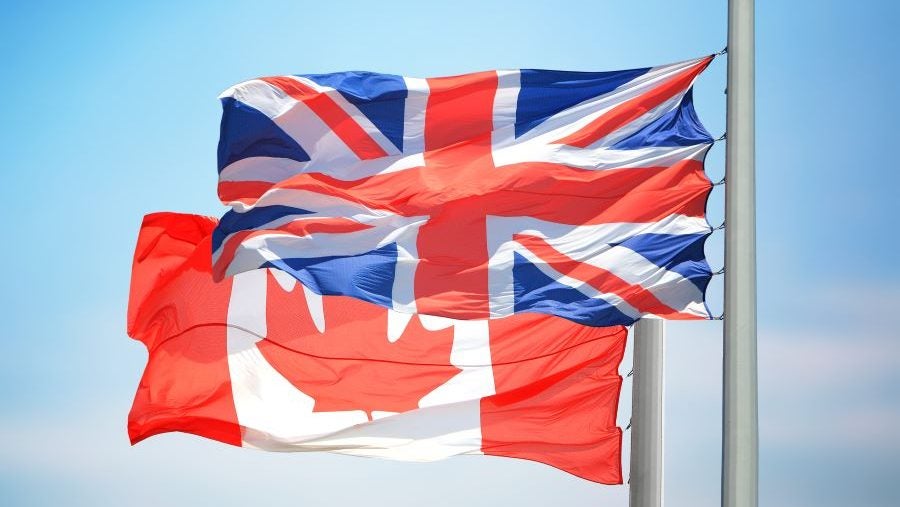
The UK has paused talks on a free-trade deal with Canada, local government sources have confirmed.
Negotiations were stopped on Thursday, due to disagreements over beef and cheese, according to local and international reports.

Discover B2B Marketing That Performs
Combine business intelligence and editorial excellence to reach engaged professionals across 36 leading media platforms.
A major issue for the UK was over tariffs on British cheese exports to the country.
A significant obstacle for Canada, Politico reported, was the UK’s unwillingness to drop its ban on hormone-treated beef.
Both sides have been trading with each other through the Trade Continuity Agreement since April 2021. That deal effectively rolled over arrangements between the countries when the UK was a member of the EU.
This time-limited agreement allowed the UK to benefit from zero tariffs on car and cheese exports to Canada.

US Tariffs are shifting - will you react or anticipate?
Don’t let policy changes catch you off guard. Stay proactive with real-time data and expert analysis.
By GlobalDataHowever, the tariff-free deal for cheese expired at the end of 2023.
In a statement, a UK Government spokesperson said: “We have always said we will only negotiate trade deals that deliver for the British people. And we reserve the right to pause negotiations with any country if progress is not being made.”
They added that the UK would stay “open to restarting talks with Canada” at a later point “to build a stronger trading relationship that benefits businesses and consumers on both sides of the Atlantic”.
In an interview with CBC, Canada’s minister for trade, Mary Ng, said she was “disappointed” that the negotiations had been paused.
“We are at the table. Frankly, I would say we continue to be at the table,” she added.
“We’re always going to look for the best deal for Canadians, it’s what we have always done, and this time is no different.”
Both parties have been negotiating for a new trade deal since 2022.
In a statement posted on X, Canadian Conservative shadow minister, Kyle Seeback, said the decision showed that “Canada’s standing on the international stage has never been weaker.”
He added: “Justin Trudeau and Mary Ng’s incompetence have put the bilateral trade negotiations with the United Kingdom in jeopardy.
“This hurts Canadian consumers, farmers and other businesses. While all our other allies have completed trade deals with the UK, Canada seems further away than ever.”
Reacting to Seeback on the social media platform, Ng said: “Our government will never agree to a deal that isn’t good for our workers, farmers and businesses.”
Several global countries have had disputes with Canada over the past year regarding access to its dairy market.
In September last year, New Zealand won its trade disagreement with the country over Kiwi dairy products being denied access to the country.
Towards the end of 2023, the US lost its case over its access to Canada’s dairy market after a dispute settlement panel agreed that no trading commitments had been breached.
The US had accused Canada of breaking claims within the United States-Mexico-Canada Agreement (USMCA) through its dairy-tariff-rate quote (TRQ) allocation measures.
It said that these measures prevented non-Canadian dairy producers from accessing Canada’s dairy market.
For its part, the UK has been trying to broker trade deals with a number of markets around the world since it left the EU. London has signed agreements with Australia and New Zealand, deals that both attracted criticism.
In March last year, the UK also announced a deal to join the Comprehensive and Progressive Agreement for Trans-Pacific Partnership (CPTPP).





